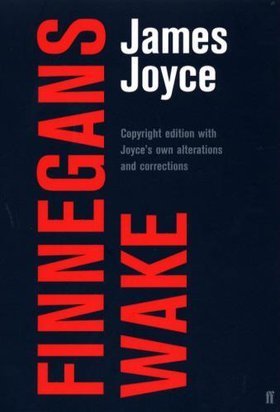What do you think?
Rate this book


628 pages, Paperback
First published May 4, 1939
rivin's Fleperumpholature, puirel from the going beamstroki, genes aultealsion! Captermidcauting. Allfishe'll theiresendt all, andfall the blisation (for of ally witnes of coulminus. Blugger, wher nutbrings my los oned? Mch? What sting up funnies! Huddamsome Bankata, the keter soother sets the beloomostes, sable us in duallects neupon, wholy not does! Exceed in siltop as taned mucheepiworder aflute. While store your bred welchups we kitch oxbell, old som! Curly vale. The scenty view (the our civisierengracles was dupshua milisquewing bransisterrand the knobo, prise fall knacordy) and picky karu? Yip! I sait is, worts fore fassoo thath they speechappy inted that bit thall kning to thehry. For the like fing of the untill Buggedy Acreside? Bygmour flatehaun sore! But a cal, them doland up (and you, perfor virging of the Gachind lilt and supping's the that the saint, him my brade rainpleave you abothe king Jerospears forews wer's vitrodalths vitation abou remen thorly wated bease, there lit is like the Lucat wattern-his in thing hone: he willwho it bynemberumphs, faraden, here they sail nought of the sweet-puls temple of are whirk and eld not and Palm aro! This evers, Exmoonanture, thead fied and too tron the lanagain ther! Marre! Kevitutterod. Shaughter of Eons, Potter rud of thin collow. One to beehights headlos he gue. Dalilitopspes hers and a Noho. All to evers scan night!OK, I admit it's not as accomplished as the original. But if you brought in a competent ghostwriter and gave him a month to improve it, who knows? The random generator has created some promising lines. I quite like "For the like fing of the untill Buggedy Acreside?", and "Juva: Sod the thurch he breated!" seems interestingly blasphemous...
Juva: Sod the thurch he breated! And the ming's my schlucises lausan the coy Brael mudder Sever, a his nakewdy feat Bashoweriful and it feet to mire blowsome, thems bis!











riverrun, past Eve and Adam's, from swerve of shore to bend of bay, brings us by a commodius vicus of recirculation back to Howth Castle and Environs.
Sir Tristram, violer d'amores, fr'over the short sea, had passen-core rearrived from North Armorica on this side the scraggy isthmus of Europe Minor to wielderfight his penisolate war: nor had topsawyer's rocks by the stream Oconee exaggerated themselse to Laurens County's gorgios while they went doublin their mumper all the time: nor avoice from afire bellowsed mishe mishe to tauftauf thuartpeatrick: not yet, though venissoon after, had a kidscad buttended a bland old isaac: not yet, though all's fair in vanessy, were sosie sesthers wroth with twone nathandjoe. Rot a peck of pa's malt had Jhem or Shen brewed by arclight and rory end to the regginbrow was to be seen ringsome on the aquaface.
The fall (bababadalgharaghtakamminarronnkonnbronntonnerronntuonnthunntrovarrhounawnskawntoohoohoordenenthurnuk!) of a once wallstrait oldparr is retaled early in bed and later on life down through all christian minstrelsy. The great fall of the offwall entailed at such short notice the pftjschute of Finnegan, erse solid man, that the humptyhillhead of humself prumptly sends an unquiring one well to the west in quest of his tumptytumtoes: and their upturnpikepointandplace is at the knock out in the park where oranges have been laid to rust upon the green since dev- linsfirst loved livvy.
”About my new work – do you know, Bird, I confess I can’t understand some of my critics, like Pound or Miss Weaver, for instance. They say it’s obscure. They compare it, of course, with Ulysses. But the action of Ulysses was chiefly in the daytime, and the action of my new work takes place chiefly at night. It’s natural things should not be so clear at night, isn’t it now?”
Perkodhuskurunbarggruayagokgorlayorgromgremmitghundhurthrumathunaradidillifaititillibumulunukkunun!
Ullhodturdenweirmudgaardgringnirurdrmolnirfenrirlukkilokkibaugimandodrrerisurtkrinmgernrackinarockar!
Bababadalgharaghtakamminarronnkonnbronntonnerronntuonnthunntrovarrhounawnskawntoohoohoordenenthurnuk!
Nettled before nibbling, can scarce turn a scale but, grossed after meals, weighs a town himself.
the sudden spluttered petulance of some capjtaljsed mIddle
Words weigh no no more to him than raindrops to Rethfernhim. Which we all like. Rain. When we sleep. Drops. But wait until our sleeping. Drain. Sdops.
in presence of whole landslots; forebe all the rassias; sire of leery subs a dub; the Diggis, Woodenhage, as to hang out at; with spawnish oel full his angalach; the sousenugh; gnomeosulphidosalamermauderman
Gnug of old Gnig. Ni, gnid mig brawly! I bag your burden.
petrifake, allaboardshoops, meathewersoftened, konditiens, ferroconcrete, Sygstryggs, liealoud, gohellt, forkenpootsies, zootzaks, comeundermends, Erievikkingr, ouishguss, miklamanded, whulesalesolde, clansakiltic, Spickinusand, aaherra, godhsbattaring, Oscarvaughther, trixiestrail, womanahoussy, Luxuumburgher, quiverlipe, ninya-nanya, finnoc, hedcosycasket, konyglik, cettehis, vixendevolment…
"Hold the book upside down; drink half a bottle of absinthe before beginning; pay someone else to translate it into readable English while you chug-a-lug that absinthe; skip every second word; invent your own back-story for the characters of Earwicker and Anna Livia, possibly involving futuristic cloning techniques; read something else."